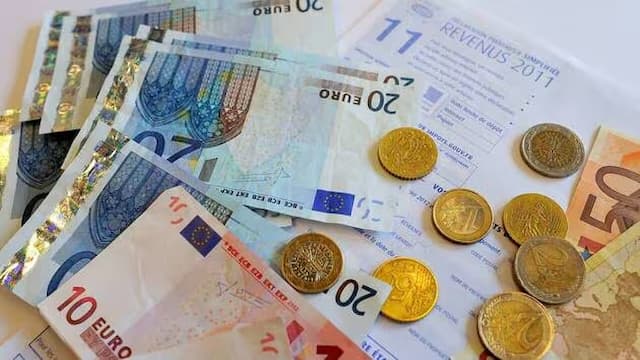What Could the Digital Euro be Used For?

Monetary sovereignty, privacy, cash replacement, the European Central Bank’s digital euro project raises many questions.
The legal framework for the future digital euro, also known as the Central Bank Digital Currency (CBDC) is a dematerialised version of the single currency, was unveiled on Wednesday 28th June 2023 by the European Commission. The project is not yet precise on its form, but the European Central Bank (ECB) evokes a consumer application capable of “ offering contactless payments or QR codes”.
Stored on a card or a mobile phone, it would allow – from 2027 or 2028 – online payments, but also without an internet connection, at no cost. The digital euro will be “accessible to everyone, everywhere and free of charge” in the twenty countries that have adopted the single currency, explained the Vice-President of the European Commission, Valdis Dombrovskis. It will provide “a public alternative” to private digital payment methods, largely dominated by foreign companies.
The institution boasts “a means of electronic payment as safe, easy to use and cheap as cash today”. The interest would then be to have a new possibility of modern payment in central bank money. But do Europeans really need it?
An increase in the power of the ECB
“The real issue is the competition between currencies and the objective is not to bring added value to the daily life of citizens,” said Claire Balva, an independent consultant specialising in digital currencies. Indeed, private online payment companies such as Lydia or PayPal already offer the possibility of paying online free of charge. With the digital euro, the only difference for users would be to go through a device managed by the ECB and not a private company. “The ambition is rather to have a euro issued by the ECB which remains competitive with foreign currencies and cryptocurrencies,” explains the digital currency expert.
This digital euro will be a new economic management tool for the financial institution. “Even if it is not clearly displayed, the ECB wants to take advantage of the possibilities of technological developments to program the currency”, and thus be able to stimulate consumption in a targeted manner, according to Claire Balva.
And privacy?
This increased visibility on all the flows that the Frankfurt institution would have worries about respect for the right to privacy. Its protection is also the main concern of the public and of the professionals questioned during a public consultation on the digital euro in 2021.
“This is not a Big Brother project,” tries to reassure Mairead McGuinness, the European Commissioner for Financial Services. However, no safeguards have yet been announced. “Traditionally, we multiply distribution intermediaries in order to disperse information. But that would make the project lose all its interest.”
On its website, the ECB indicates that “the identity of users could be separated from payment data, so that only financial intelligence units would be able to access it […] in order to identify the payer and the beneficiary in case of suspicion of illegal activity”.
New competitor to cash and commercial banks
If the comparison with cryptocurrencies is easy, the digital euro is very different from it. “Cryptocurrencies intrinsically have a desire for decentralization and not to depend on an organisation, such as a central bank”, recalls Claire Balva. Quite the opposite of this currency which would be in the hands of the European financial institution.
The digital euro would rather be an electronic equivalent of cash whose use is declining. But the ECB says that cash will not be replaced by this new currency, even though it is called “Cash +”.
To prevent this from becoming the only currency used, if Europeans adopt this means of payment – which is not yet won – it is planned to put in place a ceiling of euros held in this form which could reach €3,000. Objective: to limit money transfers from current accounts to a stock of digital euros.
Indeed, this would represent a risk for the financing of the economy. “The sums held in these accounts are used by commercial banks to grant loans,” explains Claire Balva. Banks, however, are worried about possible revenue losses since the digital euro, like coins and notes, will not be on their balance sheet.
Enjoyed this? Get the week’s top France stories
One email every Sunday. Unsubscribe anytime.


